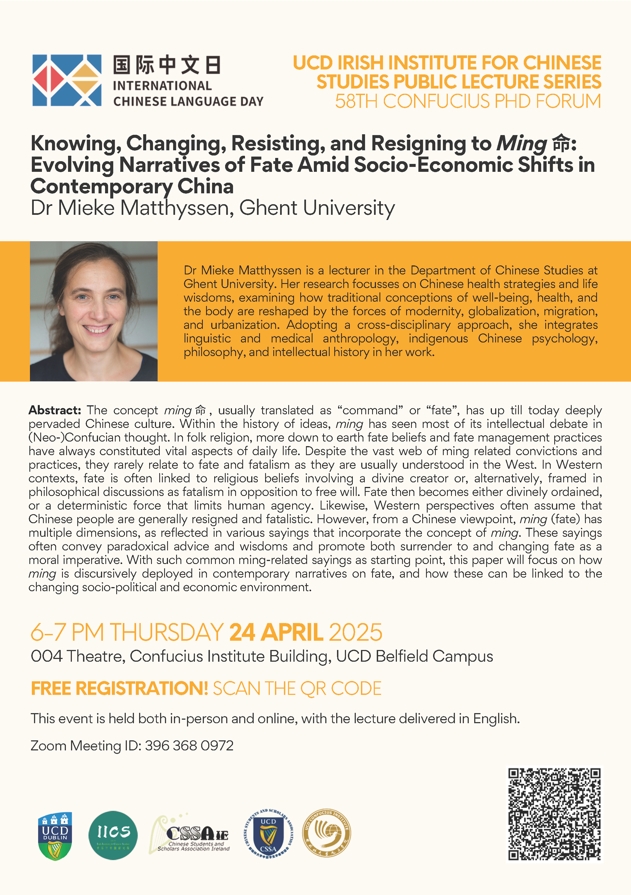International Chinese Language Day
UCD Irish Institute for Chinese Studies Public Lecture Series
58th Confucius PhD Forum
Knowing, Changing, Resisting, and Resigning to Ming 命: Evolving Narratives of Fate Amid Socio-Economic Shifts in Contemporary China
Speaker: Dr Mieke Matthyssen, Ghent University
Time: 6-7pm, Thursday 24 April 2025
Venue: 004 Theatre, UCD Confucius Institute for Ireland
Register (opens in a new window)here if you are attending in person.
Zoom meeting ID is 396 368 0972 if you are attending remotely.
The concept ming命, usually translated as “command” or “fate”, has up till today deeply pervaded Chinese culture. Within the history of ideas, ming has seen most of its intellectual debate in (Neo-)Confucian thought. In folk religion, more down to earth fate beliefs and fate management practices have always constituted vital aspects of daily life. Despite the vast web of ming related convictions and practices, they rarely relate to fate and fatalism as they are usually understood in the West. Westerners are described as being rather combative with fate. Similarly, Western assumptions are that Chinese people are rather resigned and fatalists. However, from a Chinese perspective, ming-fate has many dimensions, which are exemplified in various sayings containing ming. These sayings often convey paradoxical advice and wisdoms and promote both surrender to and changing fate as a moral imperative. With such common ming-related sayings as starting point, this paper will focus on how ming is discursively deployed in contemporary narratives on fate, and how these can be linked to the changing socio-political and economic environment.
Dr Mieke Matthyssen is a lecturer in the Department of Chinese Studies at Ghent University. Her research focusses on Chinese health strategies and life wisdoms, examining how traditional conceptions of well-being, health, and the body are reshaped by the forces of modernity, globalization, migration, and urbanization. Adopting a cross-disciplinary approach, she integrates linguistic and medical anthropology, indigenous Chinese psychology, philosophy, and intellectual history in her work.
